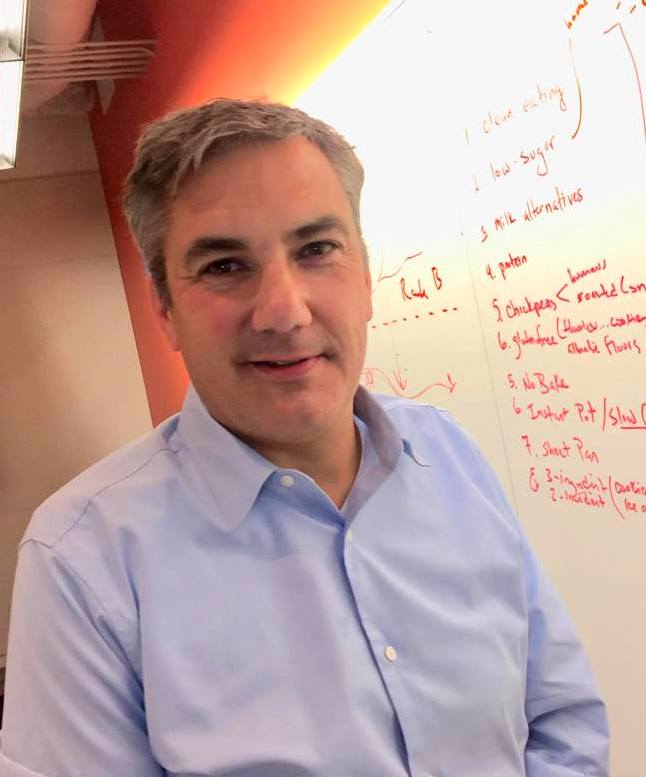It started, as if often does, with Men in Suits, when Cerberus Capital was sizing up hippie grocery chain Whole Foods. Back in April, 2017.
Private equity giant Cerberus Capital, led by a former Vice President (Dan Quayle) and a former Treasury Secretary (John Snow), controls the nation's second-largest chain of grocery stores, Albertsons (the surviving name after mergers with Safeway and Von's).
Founded 25 years ago by Trump adviser Steve Feinberg, Cerberus specializes in "distressed investments." It is named for the multi-headed, monstrous dog in Greek mythology who guards the gates of hell to prevent the dead from leaving.
Whole Foods made it clear it wasn't interested. But that was only the first part of the saga.
By May, it was Jana Partners, which bought a huge chunk of Whole Foods stock and promptly began needling founder John Mackey about the need to sell the company. Mackey responded by calling the hedge fund "greedy bastards."
Harrumph. In mid-June, Amazon bought Whole Foods for $14.7 billion. Amazon! Which was on the fringes of food with its AmazonFresh and AmazonGo operations.
For all that, Jana came out $300 million ahead in the deal. Not a bad payday.
Second, this deal is not about Americans too lazy to go shopping. It's not about concentrations of power in the hands of fewer and fewer companies. It's not about "the future of commerce" for rich white people as Derek Thomas suggests in The Atlantic. Yes, "Amazon needs food and urban real estate, and Whole Foods needs help," but to extrapolate from that statement that Americans are too lazy to shop is more than a stretch; it defies logic. The notion that the "future of food will come in boxes" is absurd.
"Millions of people love Whole Foods Market because they offer the best natural and organic foods, and they make it fun to eat healthy," Bezos said in a new release.
Amazon gets a national chain with over 450 stores, bang like that. as many grocery stores as Trader Joe's. Almost as many physical locations as Costco.
Those stores have very few direct ties to national food brands. Instead their strongest ties are to an army of loyal consumers.
Whole Foods essentially invented the organic food movement as we know it today, and it has long nurtured a reliable supply chain of farmers.
Costco--not Whole Foods--is still the nation's leading seller of organic food. But it only stocks about a third as many different items as the average American supermarket, so Costco is trying to develop a "treasure hunt" mentality (unexpected bargains in its warehouses stores to draw more customers visits). Walmart doesn't do that, Kroger doesn't do that. Whole Foods doesn't do that, either. But you never know, it might figure out some intersection of the Amazon treasure chest and the grocery store weekly special.
Meal kits? AmazonFresh is on it. Delivery from restaurants? Amazon is on it.
 Even more interesting: the new integration with Allrecipes.com, the leading online food community on the internet (in he US, anyway, 110 million users, 1.5 billion site visits a year). Look for a recipe, click on a button, and within hours AmazonFresh will ring the door bell to deliver all the ingredients.
Even more interesting: the new integration with Allrecipes.com, the leading online food community on the internet (in he US, anyway, 110 million users, 1.5 billion site visits a year). Look for a recipe, click on a button, and within hours AmazonFresh will ring the door bell to deliver all the ingredients.
The man behind this at Seattle-based Allrecipes is Corbin De Rubertis, a native of Cashmere, Wash. De Rubertis got his start in marketing as a youngster in nearby Leavenworth, a former logging town that (facing hard times) had transformed itself in the 1960s into a pseudo-Bavarian village (not unlike Solvang, Calif., or Frankenmuth, Mich.), and De Rubertis, wearing a pair knee-high of lederhosen, would greet arriving busloads of tourists with menus for a family restaurant.
De Rubertis is currently Corbin de Rubertis is VP and head of innovation for Meredith Digital (the parent company of Allrecipes). He led the Allrecipes team that integrated Allrecipes content with AmazonFresh, which will deliver the goods (a turkey, an onion, a box of croutons, and so on). If you live in an AmazonFresh market, it will show up as your default local grocer.
Sales of consumer package goods are flat, and traditional retail is going through an existential crisis, he believes. The key is serving an increasingly time-starved consumer, who is coping with kids and work. How can you reach the person for whom a bowl of cereal is already too complicated compared to a drive-through breakfast taco?
Amazon's Alexa can order pizza delivery, and make restaurant reservations, but an Allrecipes user could tell Alexa, for example, to have AmazonFresh send over a week's worth of meals. With wine pairings.
The little things make a difference. That onion, should it come pre-chopped?
Some of it is simple tricks, but most of it is daunting, says de Rubertis. "It is technically very complex." Allrecipes committed dozens of people to the project, and Amazon provided ten times the resources. But at the end of the day, they had the same objective: "Solve for dinner."
So listen to what Jeff Bezos is asking, and pay attention to what Alexa is telling him.
Leave a comment